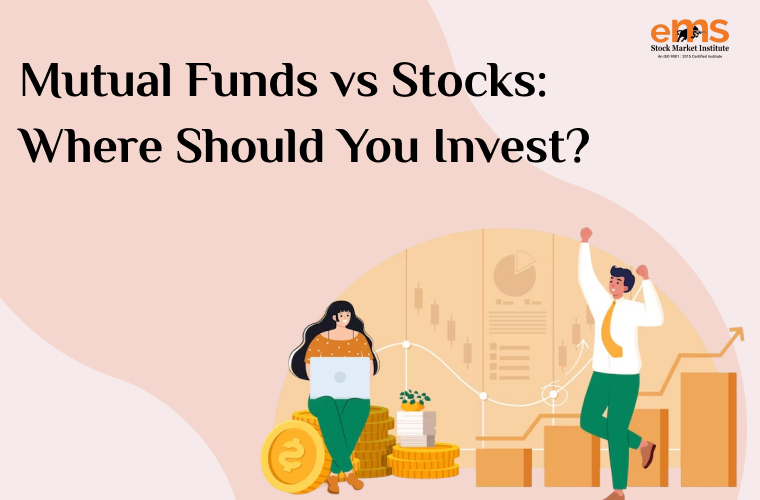Currently, the world is undergoing a significant geo political turmoil. The ongoing conflict across West Asia, war between Russia and Ukraine, political changes in the US and its economic policies, etc., are all driving paradigm shifts across the global economy.
These tectonic movements across world politics also affect the stock market. Surveys say, in 2024, geo-political risks affected the stock market more than any other event.
But why do geo-political events shake the stock market as much? How are both these elements related? As someone about to pursue stock market courses in Pune, you must understand the close relationship between both before you begin your journey.
So, let’s explore.
How Does Geo-Politics Influence the Stock Market?
Geo political events bring global uncertainty, anxiety, and disruptions. In a situation where conflicts thrive, sanctions stagnate progress, or political instabilities weaken government foundations, the stock market that relies on investments, becomes an obvious victim. Here’s how these events impact the market.
1. Investor Sentiment
The share market is a highly sentiment-driven space. Geo-political events result in fear or optimism, depending on what happens. For instance, war or war-like situations foster panic, while ceasefires or war closures lead to optimism and potentially create an environment conducive to investments.
Of course, negative sentiments and word of mouth spread faster than fire. However, positive changes can take some time to transform into reality.
During situations of geo-political tensions, people switch from relatively risky options like stocks to safer alternatives like fixed deposits, gold, etc. And the move is pretty justified. Who would want to lose money due to a war or conflict they have no control over?
2. Commodity Price Variations
Political turmoil or conflicts across the world’s oil-producing regions or countries with massive mineral deposits can lead to unimaginable spikes in commodity prices.
Oil and gas are often amongst the first ones to get affected. When they become expensive, production costs increase, profits plummet and consumer spending suffers a dent! These factors send shockwaves across the stock market, affecting stock performance.
For instance, the Russia-Ukraine war and related events drove a critical hike in WTI crude oil prices.
3. Trade Disruptions
Wars aren’t always fought with guns, grenades, and tanks. Modern warfare has morphed into several forms. One of them is a trade war. Although trade wars aren’t new, they’ve evolved over the years to become more ferocious and impacting.
Thus, trade wars between two major countries or across associations disrupt global supply chains and international trade.
Such wars initially begin with two countries. However, the increasing tensions often cascade to countries that depend on them somehow, or are their trade partners. These impact the supply of goods and affect their stock performance.
Sanctions have a similar impact. For example, sanctions on oil-selling nations can result in energy volatility, impacting associated stocks and the worldwide market sentiment. The trade war between economically solid countries like the US and China resulted in increased tariffs, driving considerable drops in technology and industrial stocks.
4. Currency Instability
Geo-political instabilities weaken currencies, prompting investors to shift their capital to more stable markets. Such capital flight can weaken emerging share markets and strengthen the US dollar, affecting global enterprises with widespread overseas business.
For instance, the 2016 Brexit vote caused the GBP to fall significantly, making the market unstable and negatively impacting stocks across the United Kingdom.
Turn Geo-Political Chaos into Investment Opportunities! Join Our Expert-Led Course Today and Learn to Protect and Grow Your Wealth with Confidence!
Final Thoughts and Quick Tips to Deal with Geo-Political Risks
As an individual, you cannot control geo-politics.
All you can do is stay safe financially and make careful and informed investment decisions.
Amidst the highly dynamic geo-political situation, no one has a set or fixed formula to stay immune to the situation. However, you can opt to do the following.
- Diversify and invest across different sectors and those that stay least affected and hold value during dynamic and uncertain geo-political circumstances.
- Stay updated about significant geo-political events and make informed forecasts.
- Hedge against currency risks as currency-hedged ETFs and international bonds can safeguard portfolios from currency variations.
- Besides, it is key to be calm and patient.
Conclusive closures might take time. But situations don’t last forever. Hence, you should continuously analyze the situation and do what’s right for your investment (whether buy, sell, or stay put), depending on the condition.
Nevertheless, building capabilities takes time just like a geo-political situation. And it is possible with stock trading classes in Pune and your experience in the market. The more you stay and tackle market situations, the more seasoned you become.
So, join stock trading classes in Pune if you want to be such a confident, composed, and resilient player. Our comprehensive stock market training in Pune, experienced faculty members, practical exposure, situation-based training, etc., help you trade and invest confidently and independently.
Want to know more? Call us at +91 95618 61818 and speak directly with our experts.

 +91 95618 61818
+91 95618 61818


